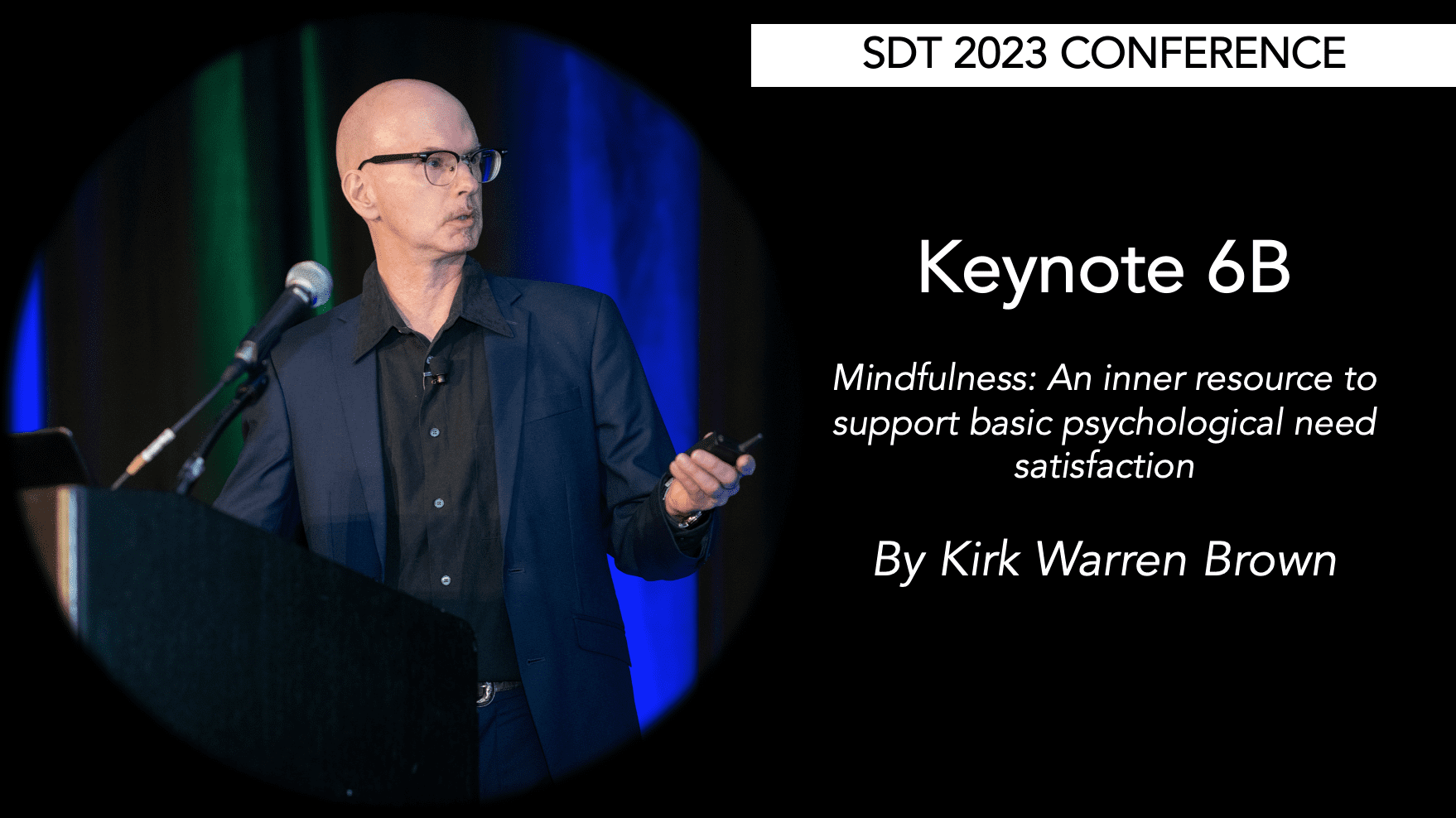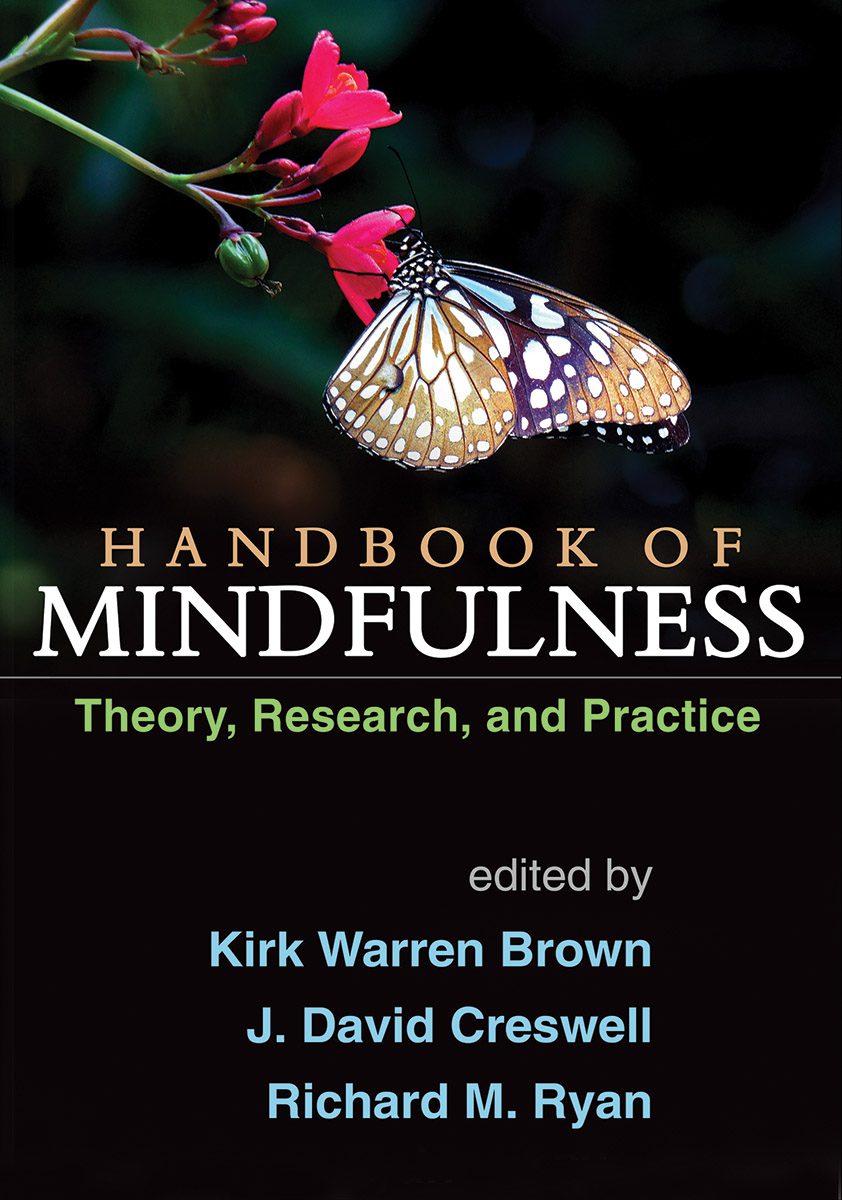Considerable research in SDT has focused on the social contextual factors that affect relative autonomy and well-being. No less important is the core role internal processes, such as mindfulness, play in volitional and self-endorsed regulation. Mindfulness within SDT is conceptualized as open awareness to internal (e.g., psychological and somatic experiences) and external events that are occurring, that is an non-judgmental awareness of the present moment. Mindfulness is seen as a “how” of meaningful and need satisfying living. That is, mindfulness affords people the ability to reflectively consider their actions and their congruency with their personal values and needs and to self-organize to act consistently with their authentic self.
Mindfulness has been shown to relate to many constructs in SDT that foster healthy interpersonal relationships, more effective emotional regulation, better cognitive performance, more adaptive coping with regards to stressors and physical health issues, and general well-being.
Research has shown for example that both autonomous self-regulation and satisfaction of the basic psychological needs are correlated with greater mindfulness (Brown & Ryan, 2003). Studies within SDT have also focused on the role of mindfulness in decreasing defensiveness and ego-involvement as it promotes more openness towards both pleasant and unpleasant experiences. That is important, as more mindful individuals are more likely to be open to important information that these experiences can bring and integrate them to their sense of self, which in turn promotes psychological wellness (Weinstein, Deci, & Ryan, 2011). Such attributes of mindfulness have also been relevant in supporting close relationships. For example, Barnes et al. (2007) found that the mindfulness predicted greater relationship satisfaction and investment in the relationship. Importantly, after times of having had a conflict, partners high in mindfulness showed less anger, hostility, anxiety, negativity, and withdrawal. These positive outcomes associated with mindfulness were proposed to result from a higher disposition to be truly present for the partner, even in high conflict situations.
It is also interesting to note that mindfulness is positively associated with a greater focus on intrinsic (relative to extrinsic) life goals (Brown & Kasser, 2005). It seems that more mindful people may more easily recognize that extrinsic goals (e.g., being rich or famous) are remote from their basic needs and behaviors that represent autonomous self-regulation. More mindful people appear to be more concerned about growing as individuals, nourishing meaningful personal relationships, and contributing to the community. Finally, Brown et al (2009) found that people higher in mindfulness were also less susceptible to consumerist messages, were more likely to savor experiences, and were more accepting of themselves and their life circumstances.
Another relevant line of research has been clarifying mindfulness’ role in emotional regulation and as a buffer during stressful situations. These researchers found that people high in mindfulness experienced less stress, were less likely to experience demanding situations as stressful and threatening, and were more likely to cope with stress in adaptive ways (using less avoidant coping mechanisms; Weinstein et al., 2009). In addition, a clinical intervention study with cancer patients demonstrated that increases in mindfulness over time related to declines in mood disturbance and stress(Brown & Ryan, 2003). Lastly, mindfulness may also be a protective factor in promoting wellness at the work place. Schultz et al (2015) found that people higher in mindfulness were less likely to feel need frustration, even in unsupportive managerial environments.
In the realm of cognition and flexible thinking, mindfulness once again seems to promote better performance. Brown et al (2016) reported that mindful attention predicted better motivation and episodic memory and discussed its implications for educational and occupational performances. This high quality awareness seem to protect cognitive resources needed to think flexibly even in stressful contexts. Schultz & Ryan (2019) reported that mindfulness had a protective role in maladaptive emotional responses when one anticipates acute pain: being more mindful appears to have shielded self-regulatory resources needed to perform a fluid-cognitive task when expecting a stressor.




